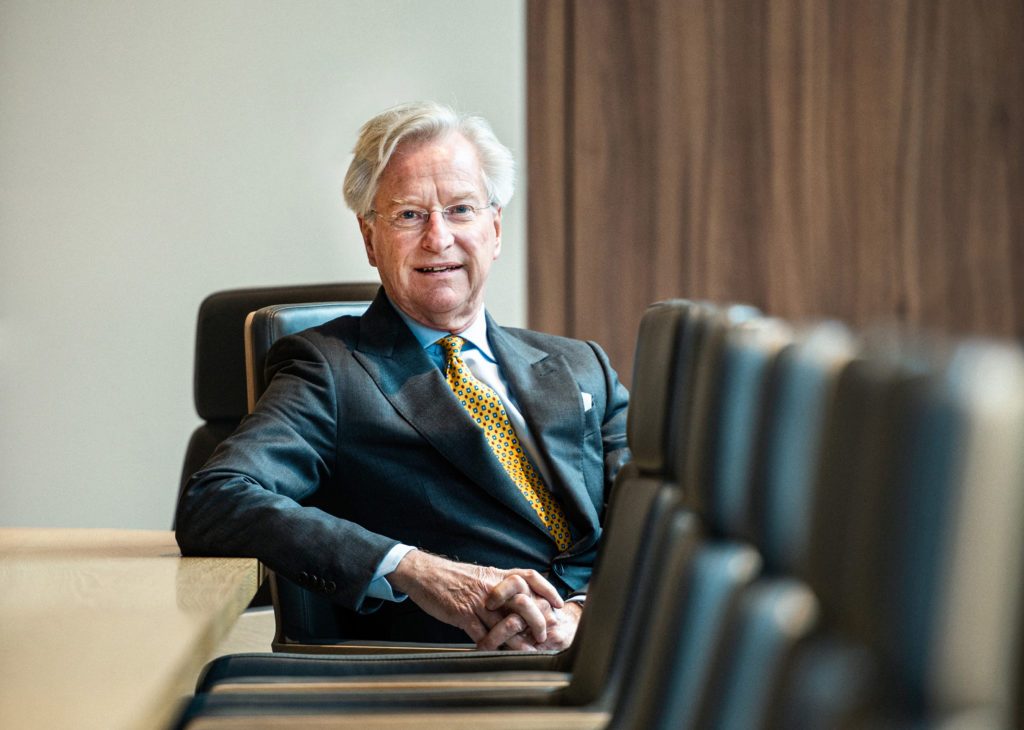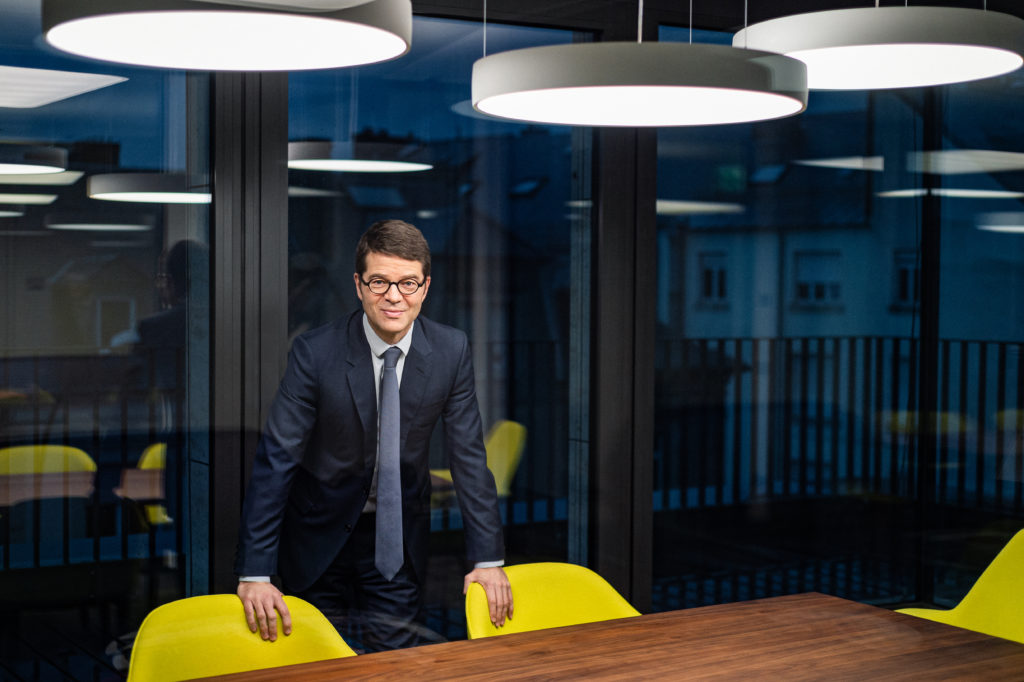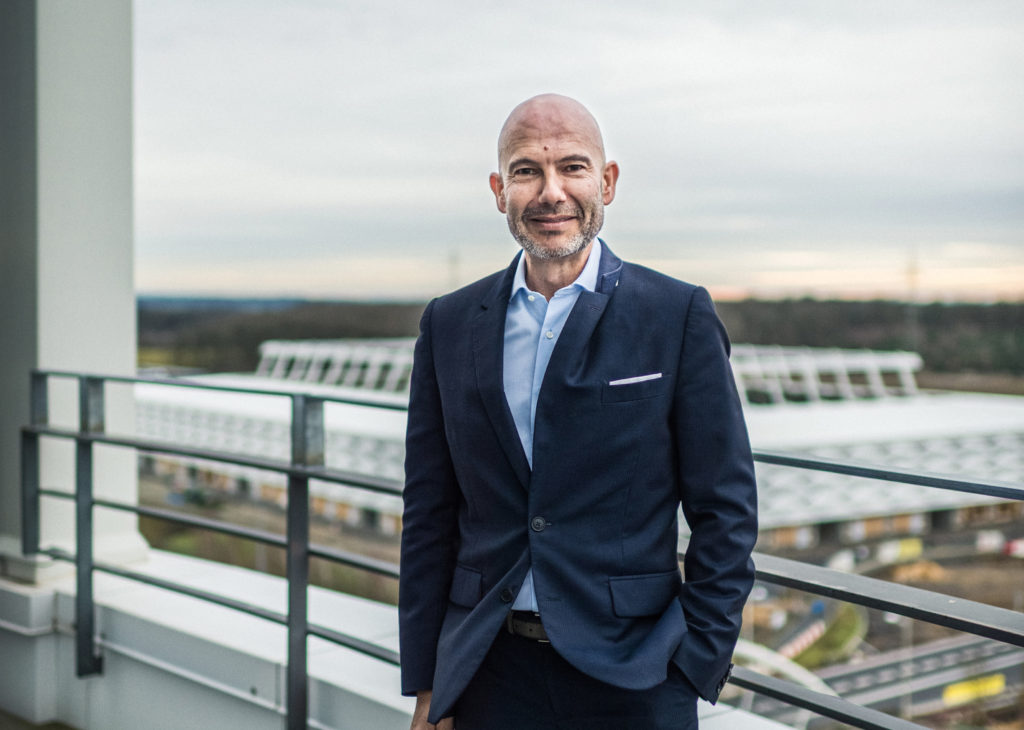LFF SAT DOWN WITH THREE EXPERTS TO DISCUSS WEALTH MANAGEMENT FROM A LEGAL AND TAX FRAMEWORK PERSPECTIVE. SERGE KRANCENBLUM, THE PRESIDENT OF THE LUXEMBOURG ASSOCIATION OF FAMILY OFFICES, CHRISTIAN KREMER, SENIOR PARTNER AT CLIFFORD CHANCE, AND PAUL MOUSEL, FOUNDING PARTNER OF ARENDT AND MEDERNACH, ALL SHARE THEIR CLIENT INSIGHTS TO HELP US UNDERSTAND HOW THE WORLD HAS CHANGED SINCE THE FINANCIAL CRISIS.

PAUL MOUSEL
DEMYSTIFYING THE TOOLBOX
Paul Mousel, Founding Partner of Arendt and Medernach, casts his mind back to the financial crisis, describing important shifts from over the past decade, notably over the last 5 years: “Two things have changed: firstly, the entire legal tax environment around wealth management. And secondly, client profiles and behaviours. People come to Luxembourg because of the seriousness of the country, not for the taxes.”
“We are living in an age of ever-increasing transparency,” notes Christian Kremer, Senior Partner at Clifford Chance. Although the ‘Know Your Customer’ rules have existed for some time, he believes that these are only getting firmer: “Luxembourg has been implementing all these rules in a strict manner demonstrating its commitment to the fight against money laundering, revealing the significance of this topic for the financial sector and actors involved.” The implementation of the Register of Beneficial Owners (RBO), was yet another critical step-change which has “greatly enhanced the transparency” alongside other various Directives. He further sees that: “Investors increasingly focus on the expertise, on the available tools, on the legal and regulatory environments, on the competence of the authorities, and on the fact that the specialised service providers are here.”
Serge Krancenblum, President of the LAFO and Executive Chairman of IQ-EQ, sees this practical approach as part of the country’s commitment to having a level playing field. He points out that Luxembourg is at the forefront of the war against money laundering: “Very stringent rules and regulations have been implemented by the CSSF tailored to financial professionals. With tax transparency and common reporting standards, the information flows to the country of residence of the shareholders of the structures. Ultimately, Luxembourg is known for the stability of its tax system and for the modernism of its legal system.”
As an EU founding member and an active adopter of all international regulations including OECD Common Reporting Standards (CRS), the Automatic Exchange of Information (AEOI), European Anti-Tax-Avoidance Directive (ATAD) – which transposes the OECD’s BEPS principles into EU law – and the Foreign Account Tax Compliance Act (FATCA), Mousel believes that the Grand Duchy is “at the forefront of providing a safe and transparent environment for businesses and individuals”. When complex needs span more than one jurisdiction, you need to be able to rely on cross-border expertise.

We are living in an age of ever increasing transparency. Investors increasingly focus on the expertise, on the available tools, on the legal and regulatory environments, on the competence of the authorities, and on the fact that the specialised service providers are here.

CHRISTIAN KREMER
He recalls that many years ago, “We had only one tool in our box: the famous Holding Company of 1929. It was like the Volkswagen Beetle. Everybody had a Beetle, even if it was their second car. Likewise, everybody had a Luxembourg Holding Company. After this was abolished, it was replaced by two tools which are efficiency focused (SOPARFI and SPF).” Since 2008, the Luxembourg toolbox has seen some modifications and some upgrades, “But in essence is an efficient way to structure a fortune”. Kremer agrees, reinforcing that the versatility and range of investment vehicles to structure the wealth of individuals in a trustworthy and professional manner is somewhat unique. It underpins Luxembourg’s desire to continuously adapt to the needs of international clients and any developments on the horizon, with the inherent value of having all the important players you might need to take care of your client in one place.
Mousel elaborates further that the toolbox was enlarged with the SOPARFI, a commercial company through which investments and the shares of other firms can be controlled, and the Family Estate Management Company (SPF) which are building blocks. More sophisticated elements were added which can be used both by private clients, but also by institutional, such as Specialised Investment Funds (SIFs), Reserved Alternative Investment Funds (RAIFs), Investment Company in Risk Capital (SICARs) and Société dInvestissement à Capital Variable (SICAVs). Luxembourg has to date signed double tax treaties with more than 77 countries.

Luxembourg’s law helps to make it more secure for the policyholders to segregate the assets from the insurance company. Luxembourg has a lot of success in structuring international families with life insurance solutions even for their private equity investments.

SERGE KRANCENBLUM
PORTABLE PEACE OF MIND
The financial crisis left a deep-lasting legacy which continues to influence how wealthy individuals plan for their future. Families have since looked to have dedicated advisors to guide them through each and every aspect of the services sought. This is one of several areas with which Serge Krancenblum is all too familiar, in respect of his role as President of LAFO: “Families need to have a professional on their side who is not going to be conflicted with any service provider.” With independence being a key benefit, relationships are therefore fostered and preserved with asset managers, tax lawyers, insurance firms, domiciliation agents, auditors, etc. Krancenblum adds, “…this is crucial when you are looking at protecting the family and making sure that they understand the risks around investment and the control and supervision of different providers needed. This is a real trend.”
LAFO itself was created as a way to formalise the family office [profession] in Luxembourg recounts Krancenblum. 2012 was a defining year, when a law was passed (among the first worldwide) to regulate multi-family offices, with far-reaching rules to uphold investor protection and a high level of service: “We needed to ensure that there was some responsibility attached, and to safeguard it as a regulated profession. It is not just when taking care of the affairs of one family, but when you are a multi-family office and act as a professional in family affairs.”
Krancenblum believes that clients are still aware of what could happen if there were a new financial crisis, particularly through the lens of current uncertainties dominating: “There are unknown unknowns: the Brexit aftermath, the U.S. election and black swan events”. Therefore stability, predictability and safety continue to be strong factors influencing international high-net-worth families when deciding where they are going to live and, or, diversify risk by setting up a European arm to their existing family offices: “They are choosing to live in Luxembourg for work opportunities, as a place to raise their children and because there is scope to develop their family affairs.” With uncertainty governing sentiment and geopolitical risk as a common denominator, Kremer detects a “wariness in the markets. The [risks] are very difficult to predict.”
In terms of geographical mobility, Krancenblum is seeing a trend in interested families from emerging countries from within Eastern Europe and Latin America, and more specifically those countries with “difficult neighbours”. Mousel points out that those wealthy individuals who have “earned their money in an honest way often stand to lose everything if the regime changes”. He adds that “Those who live in Dubai live a mere 150 kms from active conflict zones…” However, it’s not just an overseas phenomenon, volatility applies to Europe too. Mousel and Krancenblum describe how French elections are often skirting far right concerns with the potential for Mrs Le Pen’s return on the horizon… Consequently, families from surrounding European countries also choose Luxembourg for its free market potential and solid AAA rating.
Paul Mousel describes the unequivocal commitment to transparency as sort of “seal of approval” which offers peace of mind to wealthy clients: “You can go wherever you like if you have a Luxembourg company. Once you have a bank account, have the right structure and have been through the correct KYC and AMLD channels, you are in the system and can therefore do business all around the world.” Kremer further notes that: “…it is a place which is transparent and reputable, and where you can get a quick response from the regulators.”
TALKING ABOUT GENERATIONS
When thinking about future proofing for the next generation, wealth management strategies often involve the use of Luxembourg-based life insurance policies. Kremer reflects: “Life insurance is very interesting as it is another wealth management tool [in the box]; and under some circumstances it is the ideal instrument for the transmission of wealth.” Krancenblum sees it as most often applied in continental Europe and Latin America to protect assets and to help with succession planning: “Luxembourg’s law helps to make it more secure for the policyholders to segregate the assets from the insurance company. Luxembourg has a lot of success in structuring international families with life insurance solutions, even for their private equity investments.” Mousel points to unit-linked policies, “yet another tool in the famous box” which enable wealth managers to integrate highly tailored investment strategies into life insurance. They use investment funds through which clients can pursue strong growth or adopt a sophisticated, defensive strategy.
Christian Kremer is beginning to see baby boomers slowly beginning to think about retirement: “There is the question of wealth transmission and wealth planning. If I am an owner of a business, how do I transmit that to the next generation?” Succession planning can be an emotional and intricate concern and wealthy clients are driven by a desire to safeguard a flexible retirement and to have reassurance that this process will be smooth. Kremer is unconcerned about the volume of boomers as: “Luxembourg is equipped with the right tools in its box” to cope.
At the other end of the spectrum, Serge Krancenblum is not yet seeing the start-up or Facebook generation entering the world of family oce despite the vast accumulation of wealth. Looking ahead, believes that that will be the case within 5 years: “We currently see a few [entrepreneurs of this type], including some Americans. But we’re mostly about more traditional, established families and wealth. Luxembourg has thus far been less a venture capital environment, but this is a future development in the making.”

You can go wherever you like if you have a Luxembourg company. Once you have a bank account, have the right structure and have been through the correct KYC and AMLD channels, you are in the system and can therefore do business all around the world.
A NEW ERA
With strong innovation credentials, Luxembourg is perceived as well-positioned to respond to client expectations that are being shaped by globalisation, new technologies and increased regulation.
Rising technology, such as AI and roboadvice, is inevitably changing client experiences and expectations meaning that they are seeking innovative partners to accompany them in all their endeavours. Kremer highlights that Luxembourg’s multiple Fintech initiatives are indicative of a welcoming legal and regulatory environment. These firms are progressively entering the asset and wealth management space, capable of delivering tailor-made products and advice: “It’s all about data: how you interpret it, how you can use it and present it to the customer for wealth management purposes. Data protection is a very topical question and we increasingly have teams looking at this.”
Kremer also talks about a trend which he describes as the “retail-ization of clients”, meaning that incrementally, not only professional or institutional investors, but retail investors want access to different sorts of products such as private equity, real estate, infrastructure: “Luxembourg comes into play as the leading investment fund centre in Europe with all the right expertise to structure wealth with the right vehicles and instruments in place. We can offer investors exposure to, for example, real estate or infrastructure, not only professional investors, but also to retail investors. Our toolbox and financial centre experts can offer tailor-made solutions to retail clients who want exposure to these asset classes.”
With ESG taking centre stage in the media, investors are increasingly considering the impact of their investments, leading to rising demand for ESG records and criteria. Kremer highlights that there has been a lot of activity at EU level, and not only in green finance and green bonds, but in ESG in relation to financial products and in financial services more broadly: “Luxembourg is perceived to be at the forefront of these developments due, among others, to its leading position in sustainable investment funds, green bonds and its pioneering position in sustainable finance labels.” The sweet spot clients are looking for is the nexus of technology and ESG: “That is what clients are seeking – and we can offer it.”

